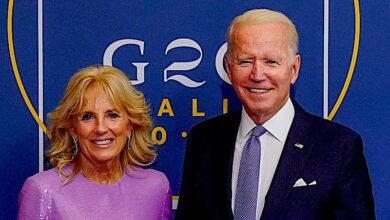Jobs report breaks expectations, unemployment at 50-year low
U.S. employers added 266,000 jobs for the month of November, surging past expected gains and continuing growth from October, adding fuel to the economic expansion.
The unemployment rate fell to 3.5%, matching the lowest rate since 1969, according to the Labor Department’s report.
The data, released by the Bureau of Labor Statistics, beat expectations. Analysts had forecast roughly 180,000 new jobs for the month.
The jobs data offers the latest snapshot into an economy that continues to grow. Heading into President Trump’s fourth year in office, the labor market remains one of the economy’s biggest engines, and Trump regularly touts the low unemployment rate as one of his top achievements.
“What a way to end the year,” said Julia Pollak, an economist at ZipRecruiter, an online employment marketplace. “The overwhelming takeaway from the whole year, and indeed the past nine years, is that job growth has been remarkably stable and steady.”
There has been some uncertainty around trade that has left businesses confused about how to shield themselves from a possible future downturn. The White House is in the midst of trying to secure a partial trade pact with China as well as revamping the North American Free Trade Agreement, and many executives are eyeing developments in those talks before they decide how to proceed.
But this doesn’t appear to have slowed hiring much in recent months. Pollak said it was remarkable that so much uncertainty wasn’t depressing job growth.
Markets rejoiced at the report, with the Dow Jones industrial average up more than 300 points midday Friday. Both the Standard & Poor’s 500 index and the tech-heavy Nasdaq were up 1 percent.
“It’s a significant surprise because economists were ready to go with the idea that payroll growth was slowing down because the job market had gotten tight,” Stephen Stanley, chief economist for broker-dealer Amherst Pierpont, told Bloomberg. “The whole tenor has changed in terms of job growth. We’re back at steady-as-she-goes at a robust pace.”
November was the first full month after the United Auto Workers union called a 40-day strike at General Motors factories. The end of the strike saw over 41,000 workers added to auto manufacturing jobs.
“Bloomberg Economics is lowering its projection of the 2020 year-end unemployment rate to 3.3% from 3.4%. Hiring momentum continues to surpass the growth rate of the labor force,” wrote Bloomberg economists Carl Riccadonna and Yelena Shulyatyeva. “On Nov. 3, 2020, as voters head to the polls, they will be facing the lowest election day unemployment rate since Dwight Eisenhower won his first term as president in 1952.”
Over the past 12 months, average hourly earnings have risen by 3.1 percent, just slightly up from an increase of 3 percent reported last month.
“The basic theme here, America is working,” said Larry Kudlow, director of the National Economic Council, on CNBC Friday morning. “America is working. And, by the way, the middle-class workers are working.”
Nikki Haley: God has brought ‘lessons’ and ‘change’ through Trump’s presidency; Rick Perry agrees








